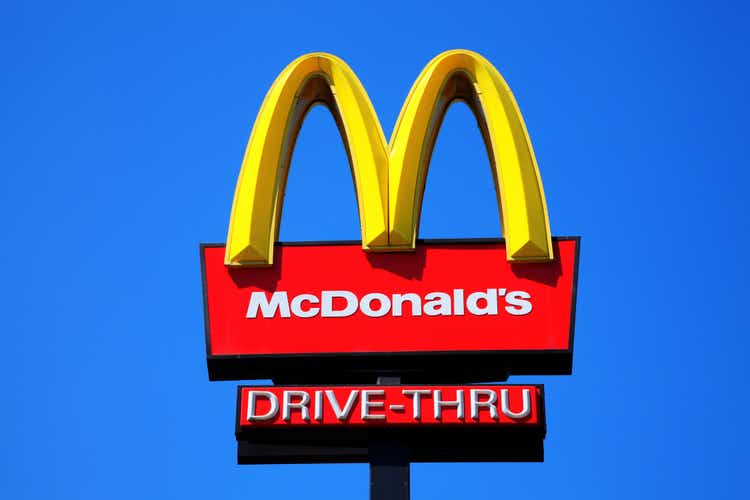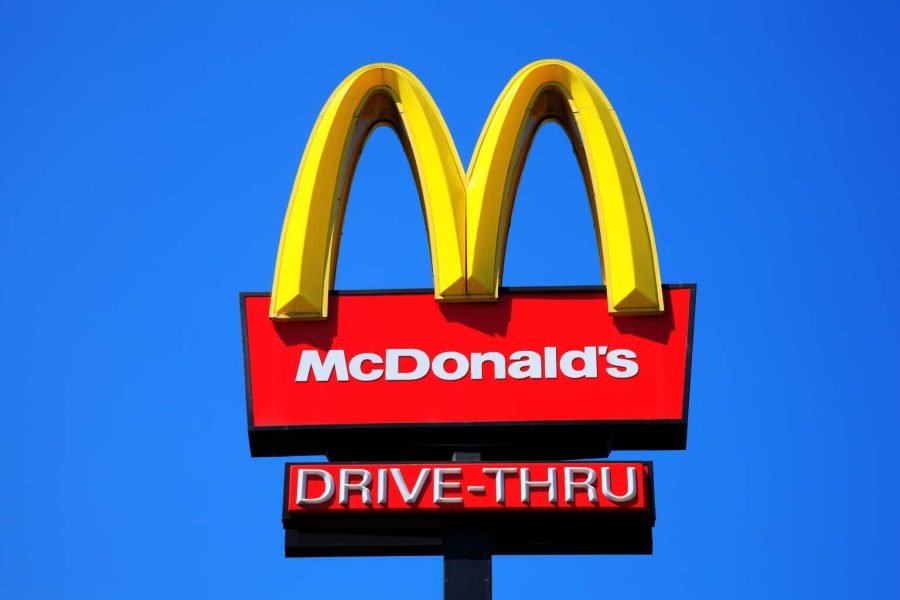Summary:
- McDonald’s in Altoona faced negative reviews after a suspect was arrested for the murder of UnitedHealthcare CEO, which Google promptly removed.
- Citi forecasts a 7% rise for the S&P 500 in 2025, but anticipates increased volatility, especially with a potential second Trump administration.
- Oracle’s cloud growth and expense discipline were praised despite weaker-than-expected Q2 results.
TonyBaggett
Listen below or on the go on Apple Podcasts and Spotify.
Google took down reviews posted after an MCD employee tipped off authorities. (0:16) Citi sees S&P 6,500 for ’25. (1:26) Boeing up as 737 Max production restarts. (3:22)
This is an abridged transcript of the podcast.
Our top story so far: McDonald’s (NYSE:MCD) restaurants in Altoona, Pennsylvania were review bombed online after a suspect was arrested in connection with the shooting of a UnitedHealth (NYSE:UNH) executive. That prompted Google (GOOG) (GOOGL) to remove the negative reviews.
UnitedHealthcare CEO Brian Thompson was fatally shot last Wednesday, triggering a nationwide manhunt for the shooter. Luigi Mangione was arrested at a McDonald’s in Altoona on Monday after an employee tipped off police. Mangione has been charged with one count of second-degree murder and four other charges.
Thompson’s murder unleashed social media rage against U.S. health insurers, with many users showing no sympathy for the executive’s death and instead slamming companies for denying claims or care.
Following Mangione’s arrest, negative and one-star ratings were posted for around three McDonald’s locations in or around Altoona, complaining about “snitches.”
A Google spokesperson told Seeking Alpha: “These reviews violate our policies and have been removed.” According to its policies, reviews must be based on real experiences with a location.
In today’s trading, “Lawrence of Arabia” (a film that is essential to see on the big screen) premiered on this day in 1962—and it’s kind of a desert out there as far as the broader market is concerned. The major averages are barely changed.
Citi set a 6,500 target for the S&P 500 (SP500) in 2025 and said the ongoing bull market will be met with increased volatility as a second Trump administration converges with supportive market pillars such as AI demand.
The 6,500 base-case target implies a +7% rise for the S&P next year.
Strategist Scott Chronert said trading in 2025 may bring “more volatility episodes than has been the case this year,” which was unusually steady with no -10% drawdown for the benchmark.
“In sum, the bull run is set to enter its third year with lofty expectations at its starting point. We believe post-election euphoria reflects confidence in longer-term growth drivers, but our structurally positive view on S&P 500 fundamentals does have a myriad of issues that need to be navigated.”
The bull case is 6,900, and the bear case is 5,100.
Among active stocks, Oracle (ORCL) is slumping after fiscal second-quarter results and guidance that were a bit weaker than expected. But Wall Street continued to praise the stock amid continued growth in the cloud.
Piper Sandler analyst Brent Bracelin said, “While the Oracle Cloud momentum was encouraging, consistent expense discipline coupled with improving margins across cloud applications and infrastructure was equally encouraging.”
C3.ai (AI) was choppy following fiscal second-quarter results that beat estimates and higher outlook.
JMP Securities analyst Patrick Walravens maintained his Market Outperform rating and increased the price target to $55 from $40. He said C3.ai continues to face a number of risks, including its dependency on Baker Hughes, which has represented about 20% of fiscal 2025 revenue and whose current contract expires in June 2025. But they continue to like the story as the company has now had seven quarters of accelerating revenue growth and offers a range of AI applications for enterprises in fields like manufacturing, defense, government, and oil and gas.
And Boeing (BA) is among the top S&P gainers on a report that it resumed factory production of its best-selling 737 Max jet.
Reuters said work on the plane started on Friday, about a month after a seven-week strike ended. About 33,000 machinists had walked off the job as their union hammered out a new labor contract with Boeing’s management.
In other news of note, following a sharp negative reaction to comments made on Monday at the UBS Global Media and Communications Conference, T-Mobile CEO Mike Sievert clarified remarks he made that he said were misinterpreted.
Sievert said in a press release: “My comments explaining normal seasonal trends in Q4 were misinterpreted by one media outlet as a warning.”
“To be clear, our Q4 is trending at least in line with prior expectations, maybe better. We continue to expect to deliver about 3 million postpaid phone net additions for the year, or more. Q3 was a fantastic growth quarter for T-Mobile and our growth momentum continues in Q4.”
Shares are up 2%, having fallen 6% in the previous session.
The CEO said on Monday, “It’s been a great quarter so far. The only thing I would caution, and I can just hear myself saying this in prior years as well, is that this quarter’s back end loaded. So, while I’m here to tell you it’s going great, we’re confident in our guidance, investors should be cautious because there’s a lot of risk in the back half.”
And in the Wall Street Research Corner, for those that remember “The World According to Garp,” whether the John Irving novel or the Robin Williams film, maybe it’s time to have a portfolio according to GARP.
GARP—or growth at a reasonable price—is a stock-picking strategy combining growth and value.
To surface these names, we ran our own Seeking Alpha screen for stocks with a Quant Rating of Buy or Strong Buy that have forward revenue growth above 10% and a forward price-earnings-to-growth ratio below 1.4.
Stocks on the list include United Air Lines (UAL), Allstate (ALL), Taiwan Semi (TSM), Block (SQ), IMAX (IMAX), Baker Hughes (BKR) and Okta (OKTA).

